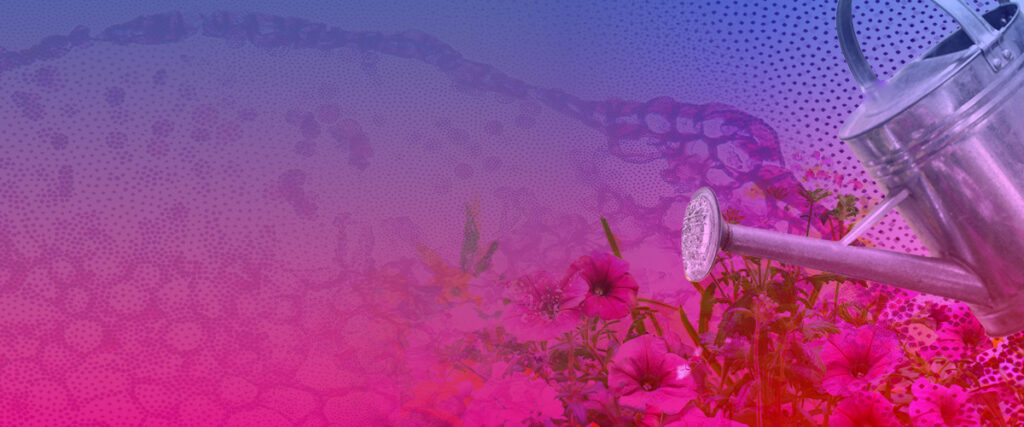The Gut Garden: What to Feed It & How to Maintain Its Structural Support
Although probiotics are a good start, supporting a healthy gut microbiome is more than just taking daily probiotics!
Most people don’t start with a balanced microbiome. Most need help restoring microbial diversity, adjusting numbers of individual species, and eliminating undesirable species.
Many people also have gut barrier structural integrity issues. A barrier with gaps between epithelial cell junctions permits toxins, food particles, and molecules that normally stay in the GI tract to pass into the bloodstream, triggering whole-body reactions.
Savvy gut gardeners know they reap what they sow. Let’s look at ways to support a thriving gut garden.
Feed Gut Bacteria
Green-thumbed cultivators know a garden doesn’t thrive in depleted soil. Tall redwoods to tiny microbes all need nutrients to grow and thrive!
Prebiotics—dietary fibers that can’t be digested or absorbed by the digestive tract—feed the gut’s bacterial garden. Prebiotics provide a high-octane food source for gut microbes.
However, most prebiotics aren’t selective. Many prebiotics feed the unfriendly microorganisms we’d rather not support.
Yet, some prebiotic blends support beneficial microbes without feeding the undesirables. A precision prebiotic weeds the gut by selectively feeding keystone species!
Build Structural Support
Structural support keeps what’s inside the gut garden from getting out. Toxins, food particles, and large molecules shouldn’t pass into the bloodstream. Strengthen the gut mucosal barrier with support from specific ingredients, including:
- Immunoglobulins: Toxins irritate the gut’s lining, damaging tight junctions between epithelial cells and passing into the bloodstream. Immunoglobulin proteins provide passive support, removing harmful toxins and safely eliminating unwanted elements.
- Targeted Amino Acids: Mucin is a substance that makes up the intestine’s protective mucosal barrier. L-threonine, L-cysteine, L-proline, and L-are amino acids that promote mucin synthesis and rebalance the gut microbiota, supporting colon protection and mucosal barrier rebuilding.
- Citrus bioflavonoids: Clinically shown to support microbial diversity and gut barrier integrity, citrus bioflavonoids and their metabolites help maintain the gut’s mucus lining.
Restore & Tend the Gut Garden
Restoring the gut garden means reconditioning the microbiome with probiotics, reinforcing it with prebiotic food sources, and rebuilding the gut barrier with ingredients that strengthen its structural support.
Remember that a gut garden needs constant tending! Support the microbiome with probiotics, prebiotics, and mucosal barrier support supplements. By giving our gut gardens care and attention, we’re rewarded with a healthy, harmonious microbiome that supports whole-body health and well-being!

